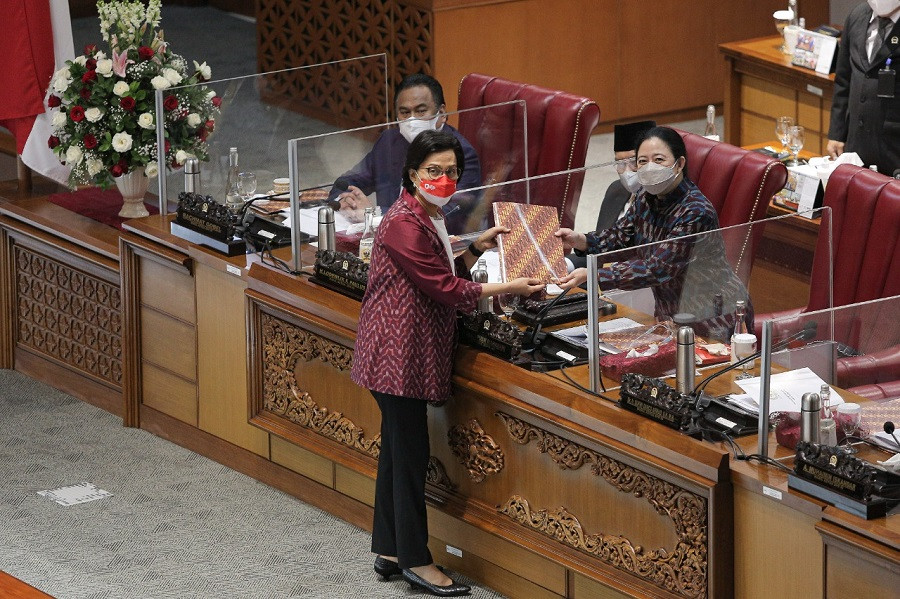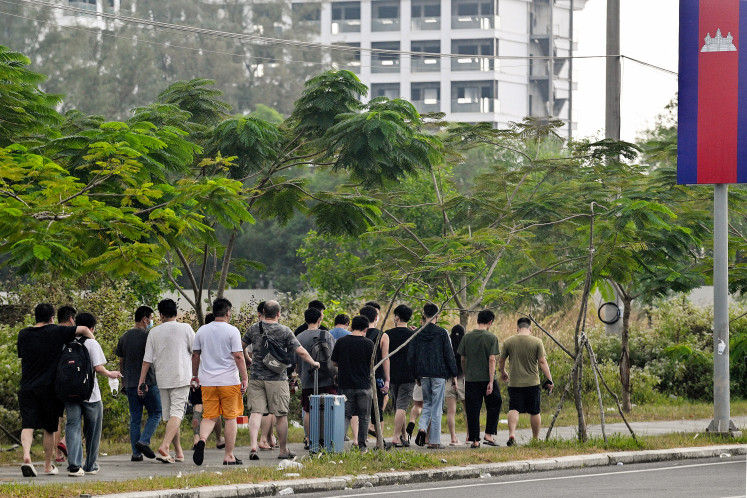Popular Reads
Top Results
Can't find what you're looking for?
View all search resultsPopular Reads
Top Results
Can't find what you're looking for?
View all search resultsRecovering amid uncertainty
A deeper look into the composition of the state revenues last year revealed the risk of too heavy dependence on commodities, notably minerals, oil and gas and palm oil.
Change text size
Gift Premium Articles
to Anyone
T
he Indonesian economy recovered with growth of 3.69 percent in 2021 from a contraction of 2.07 percent in 2020. Though the growth was lower than the 4 percent target, the recovery trend is still encouraging because on a quarterly basis the 5.02 percent growth in the last quarter of 2021 exceeded the annual average economic expansion before the pandemic.
This significant recovery can be attributed to the commodity boom and the government’s correct fiscal response to the health and economic crisis caused by the COVID-19 pandemic. The government’s bold, comprehensive and well-coordinated policy measures to protect lives and livelihoods from the impact of the pandemic has succeeded in reducing both absolute poverty, open unemployment and the Gini ratio, a global index measuring inequality.
The budget deficit was controlled at 4.65 percent in 2021, down from almost 6 percent in 2020. This trend has led to great optimism that the government is on the right path toward a strong recovery and smooth transition back to the fiscal deficit ceiling of 3 percent in 2023 as required by Law No.2/2020. The government set the fiscal deficit target this year as low as 4 percent.
The overarching reforms, as stipulated in the 2021 Harmonized Tax Law, is expected to boost tax revenues as the law raises rates and expands the coverage of value added tax and introduces a 35 percent income tax for the richest families. The second-round tax amnesty offered in the new law will also bring about a significant one-off rise in income tax revenues and expand the tax base.
But despite the seemingly positive outlook of state revenues this year, a deeper look into the composition of the state revenues last year revealed the risk of too heavy dependence on commodities, notably minerals, oil and gas and palm oil. In fact, data over the last decade showed that state tax revenues reached their annual target only when the commodity market boomed. The Finance Ministry has achieved and, in several cases, exceeded targets for taxes, customs and excise, and nontax revenues mostly because of the commodity boom.
The quality of growth in terms of employment is also discouraging because the highest sectoral contributors to gross domestic product -- manufacturing industry, trade, mining, construction and agriculture -- still grew at below the average pre-pandemic rate. Moreover, the pandemic has yet to be gotten under control.
This trend requires the government to launch more concerted efforts to reinvigorate new investment in labor-intensive and higher value-added manufacturing industries. But new investors are likely to wait until the revision of the 2020 Job Creation Law, as ordered by the Constitutional Court, and the country will continue to muddle through with a maximum growth of 5 percent.
Unless the revision is made this year, uncertainty will continue to loom over new investments as the law, which has been welcomed by investors as the most comprehensive and boldest reform so far, will remain in limbo. In 2023 most members of the Cabinet and politicians will be preoccupied with political grandstanding campaigns as they gear up for the Feb. 14, 2024 presidential and general elections.











